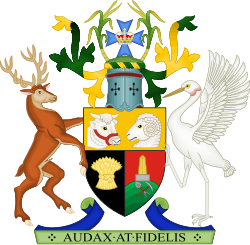| Anti-Discrimination Act 1991 | |
|---|---|
 | |
| Parliament of Queensland | |
| |
| Passed | 3 December 1991 |
| Royal assent | 9 December 1991 |
| Commenced | 30 June 1992 |
| Introduced by | Hon. D. M. Wells (Murrumba – Attorney-General) |
| Status: Current legislation | |
The Queensland Anti-Discrimination Act 1991 is an act of the Parliament of Queensland that provides protection against unfair discrimination, sexual harassment, and other objectionable conduct. [1] The Act was passed by the Queensland Parliament on 3 December 1991, received assent on 9 December 1991, and commenced on 30 June 1992. [2]